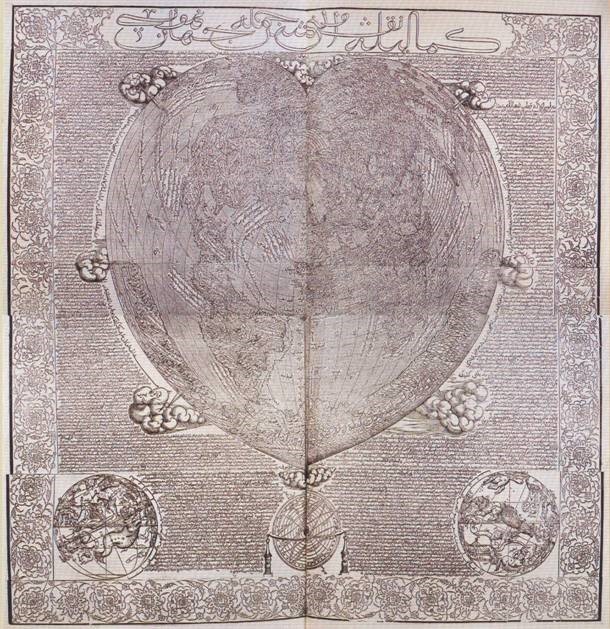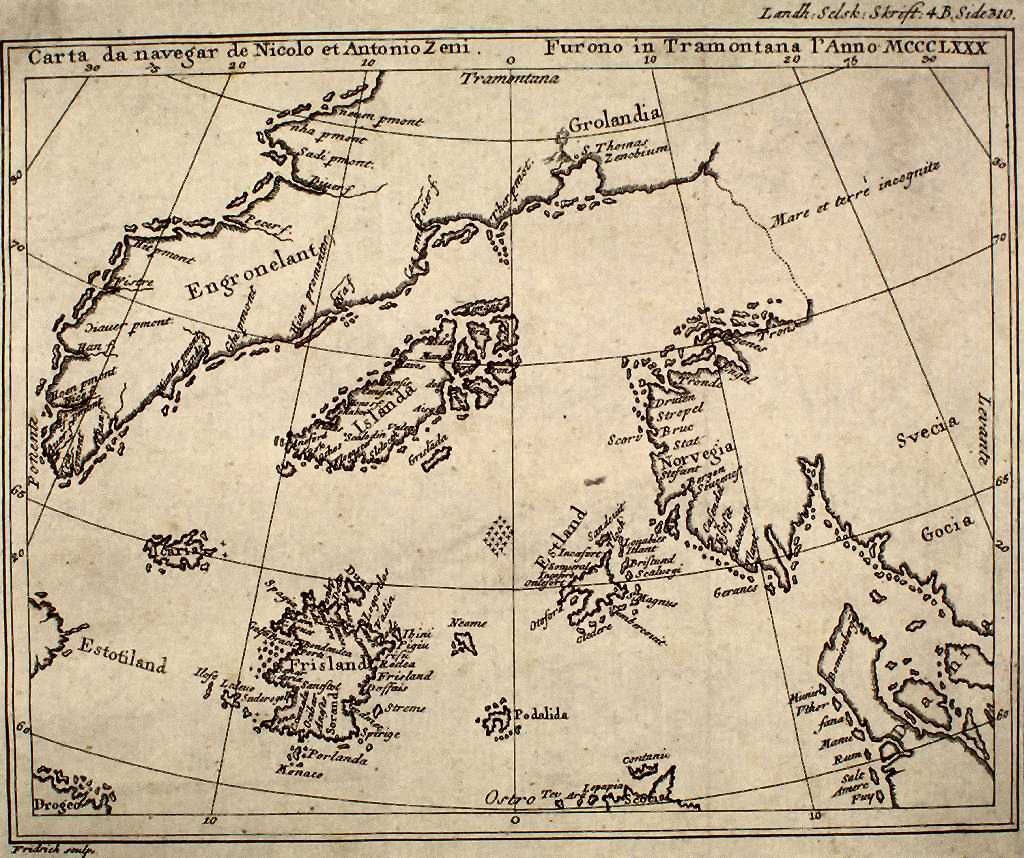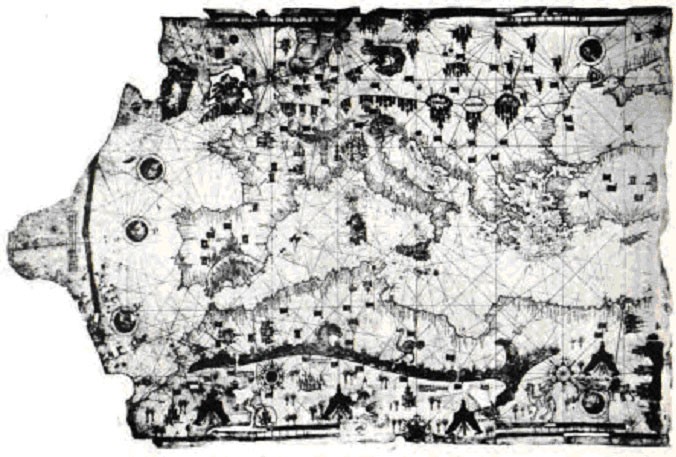
A reproduction of the Zeno map from a 1793 book. Source: Wikimedia Commons.
One of the most interesting guides is the Zeno Guide. Distributed around 1380, the puzzling guides precisely delineate the shorelines of advanced nations, for example, Norway, Sweden, Denmark, Germany, and Scotland. Strangely, this old guide additionally portrays the Specific scope and longitude of various islands on our planet. This is an enormous mystery since the gadget important to quantify the longitude, the chronometer, was not developed until 1765. In the event that this isn't sufficiently strange, the Zeno map likewise portrays Greenland liberated from icy masses, implying that by one way or another, somebody graphed it before the Ice Age.
Another marvelous guide is no ifs, ands or buts the Iehudi Ibn ben Zara map. Made in 1487, the guide shows leftovers of icy masses in England, yet in addition, very point by point delineations of islands in the Mediterranean and Aegean oceans. Today, these islands despite everything exist, except because of rising water levels, which are currently underwater. Hacı Ahmet's Guide of the World: A total and flawless guide depicting the entire world Picture Credit: Wikimedia Lodge

Hacı Ahmet’s Map of the World: A complete and perfect map describing the whole world Image Credit: Wikimedia Commons
The Hadji Ahmed map, distributed in 1559, shows unimaginably exact depictions of the western bank of Northern America and Antarctica. What is considerably more amazing is the way that this old guide shows a land connection association between Siberia and Gold country, demonstrating it started from when the extension was as yet present.
Distributed in 1737 by Philippe Buache, the Buache map is accepted to have been made with the utilization of considerably more old guides. This graph shows Antarctica a long time before the 'frosty' mainland was, truth be told, found. Strikingly, in the same way as other old guides, this also precisely portrays Antarctica with no ice. The Bouche Guide additionally precisely situated Canary Island.
The guide distributed in 1737 likewise shows the right blueprint of the submerged level on which the islands are found. This implies the wellspring of the guide used to make it depends on a study of the shape before icy masses softened and sea levels rose. Considerably additionally intriguing is the way that the Buache Guide delineates the stream, which partitions the mainland of Antarctica into two landmasses.
Made in 1502, the Harry Ruler Outline shows northern Siberian waterways exhausting into the Ice sea, which is presently under the ice.
Strikingly, it additionally delineates chilly stays in the Baltic nations and precisely portrays the old Suez Waterway. This unbelievable guide additionally delineates what today are colossal islands in Southeastern pieces of Asia, however, consolidated via land, demonstrating that topographically, the guides were made when the Earth looked much in an unexpected way.
The Guide of the North by Ptolemy portrays frigid sheets moving across south-focal Greenland. It likewise delineates ice sheets withdrawing from cutting-edge Germany (north) and parts of southern Sweden. Another guide showing an alternate course of events on Earth.
Another fascinating guide is the Ruler Jaime World Diagram. It was made in 1502, and precisely portrays portions of the Sahara Desert showing it much uniquely in contrast to it is today: with rich land, colossal lakes waterways, and what seem, by all accounts, to be old urban communities. Truth be told, Sahara was, in the far off past, a ripe land loaded up with creature life and woods.
The Oronce Finé World Guide made in 1534, is an early cordiform outline that showcases highlights of Antarctica when the landmass was not secured by Ice. While it is one more guide that shows the mainland before it was formally 'discovered,' the graph likewise shows landmass waterways, valleys, and coastlines while additionally delineating the rough area of what is the South Shaft today.







No comments
Note: Only a member of this blog may post a comment.